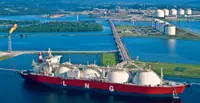WATER security is still not on the priority list of many governments around the world. That needs to change.
A leaf should be drawn from what happened at India’s IT hub Bengaluru in March.
Follow us on our official WhatsApp channel for breaking news alerts and key updates!
Water security
,
raw water
,
non-revenue water
,
NRW
,
shortages
,
water hub
,
infrastructure
,
SPAN
Thank you for your report!





